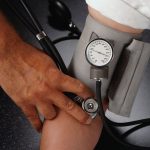
When the 2015 U.S. Dietary Guidelines were released, they included details for following the Mediterranean-style diet. That’s the way of eating in countries that border the Mediterranean Sea and has been associated with many health benefits, from a sharper mind to a healthier heart. The eating plan includes more fruit and seafood and less dairy than traditional healthful diets. And this way of eating is as tasty as it is healthy and easy to follow. The first guideline of the Mediterranean diet is to eat mostly plant-based foods — a wide variety of fruits and vegetables, whole grains, legumes and nuts. Next, is to replace butter with healthy fats, such as olive oil. Also, use herbs and spices instead of salt, eat fish and poultry at least twice a week, and limit red meat to just a few times a month. In terms of exact portions, for a daily diet of 1,200 calories, start with 1.5 cups of vegetables and increase from there. Over the course of every week, get a mix of dark green, red and orange veggies for their range of micronutrients, and include some legumes, great sources of fiber and some protein as well as carbs. Other amounts of daily foods to include are 1 cup of fruit; 4 ounces of grains — at least half of which are whole grain; 2.5… read on >





























-300x200.jpg)







-300x169.jpg)
